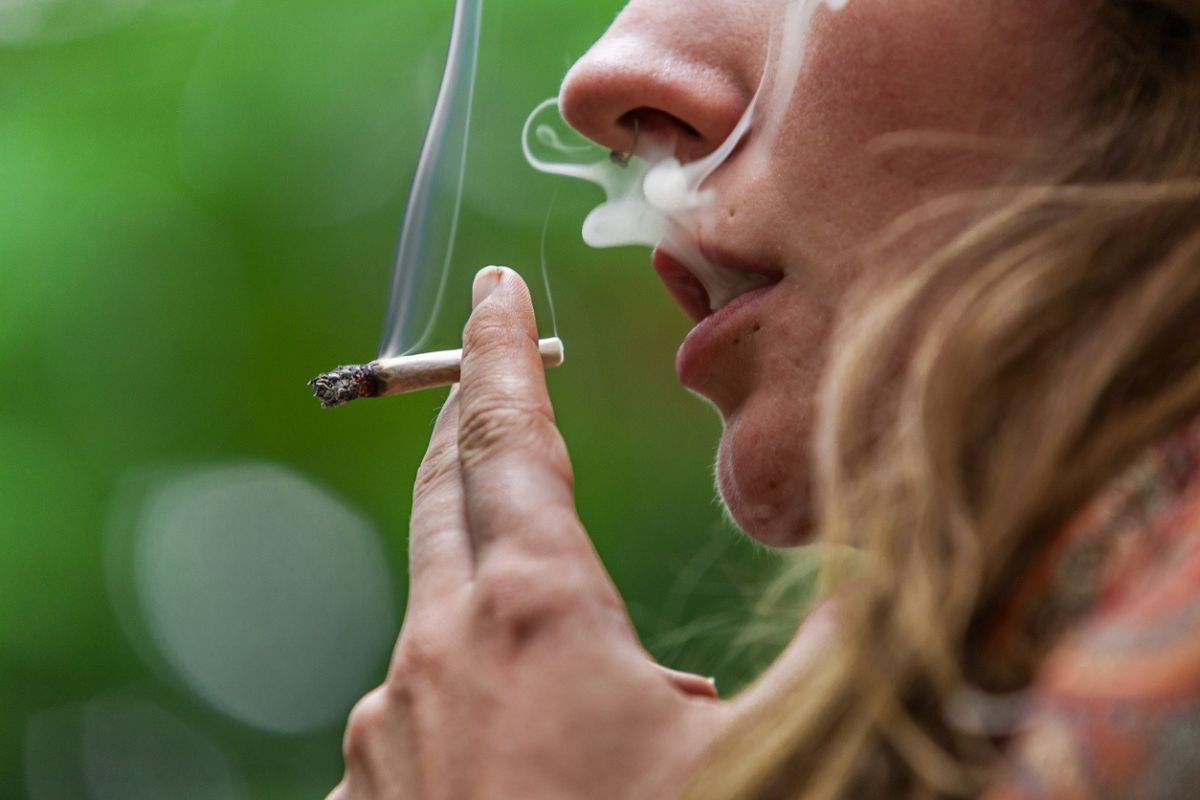New research out of Canada shows that individuals struggling with cannabis use disorder (CUD) boast elevated brain activity in the region tied to dopamine production. Unfortunately, it’s activity that’s also related to untreated psychotic symptoms.
The paper – appearing in JAMA Psychiatry – offers new intel into how cannabis use might accelerate the risk of developing psychosis, while supporting a biological connection through the brain’s dopamine system.
“This could help explain why cannabis use increases the risk of hallucinations and delusions, key symptoms of schizophrenia and other psychotic disorders,” first author and McGIll University PhD student Jessica Ahrens explained.
Methodology
The cohort study involved 61 participants, some with and some without CUD. The researchers also included several first-episode schizophrenia (FES) patients.
The team used a specialized form of magnetic resonance imaging known as neuromelanin-sensitive MRI to study movement in the brain’s substantia nigra and ventral tegmental area (SN/VTA), significant areas of dopamine activity.
Participants were recruited from an early psychosis service and surrounding communities in London, Ontario, between 2019 and 2023. Of the 61 individuals, 25 had CUD (with or without FES), and 36 did not. Researchers compared neuromelanin-MRI signals across these groups and followed 37 of the participants over the course of a year.
Earlier research already identified a link between abnormal dopamine signaling and schizophrenia (along with other psychotic disorders.) But this new paper is among the first to use neuromelanin-MRI to explore whether cannabis use might influence these brain systems in the same way.
Results
The results revealed that those participants with CUD had notably elevated neuromelanin-MRI signals. This overlaps with brain changes previously found in patients enduring untreated psychotic symptoms. It’s worth pointing out that the increased signal appeared especially pronounced in a subregion already linked to psychosis severity.
The data confirmed the connection. Researchers found that cannabis use boosted dopamine-related brain signals, especially in those with more severe CUD symptoms. This dose-dependent relationship, the authors write, suggests that more severe cannabis use might lead to stronger shifts in dopamine function.
Notably, the study failed to uncover any significant increase in neuromelanin-MRI signals in the FES participants who didn’t use cannabis. This, the researchers argue, suggests that cannabis might play a singular role in triggering this specific dopamine pathway.
“This study provides compelling evidence that cannabis use is linked to alterations in a dopamine-rich area of the brain that is also implicated in psychosis,” the authors wrote. “This supports the idea that cannabis may act on a final common pathway for the development of psychotic symptoms.”
Real-World Implications
While the study doesn’t prove that cannabis causes psychosis, it does shore up the biological argument for a link. The findings could have implications for both public health and clinical practice, particularly in identifying individuals at heightened risk of psychosis due to cannabis use.
“The lack of clear biological evidence linking cannabis to psychosis has made it harder to persuade young people with psychotic symptoms to reduce their use,” McGill University Professor of Psychiatry Lena Palaniyappan, PhD, added. “Our findings could help doctors and mental health professionals better educate patients about the potential risks of frequent cannabis use, especially for those with a family history of psychosis.”
And, as the researchers wrote, “Larger longitudinal studies can help us understand how cannabis use changes the dopamine system in psychosis over time.”
Further Reading
Does Heavy Cannabis Use Threaten Long-Term Memory?
How Brain Networks in Recovered Psychosis Patients May Help Predict Relapse


